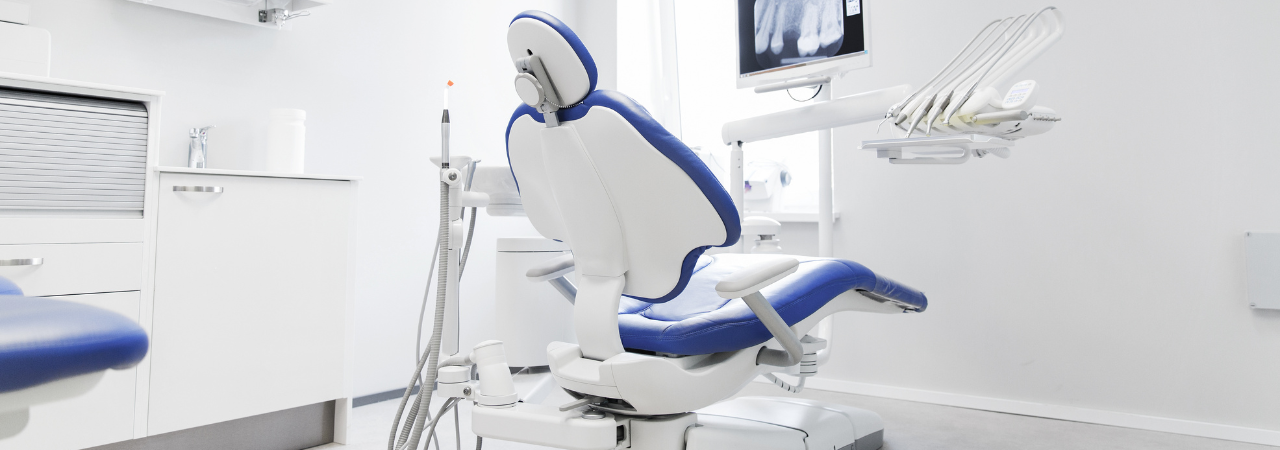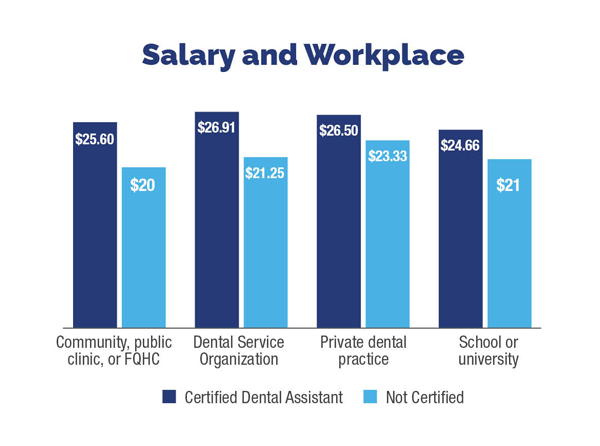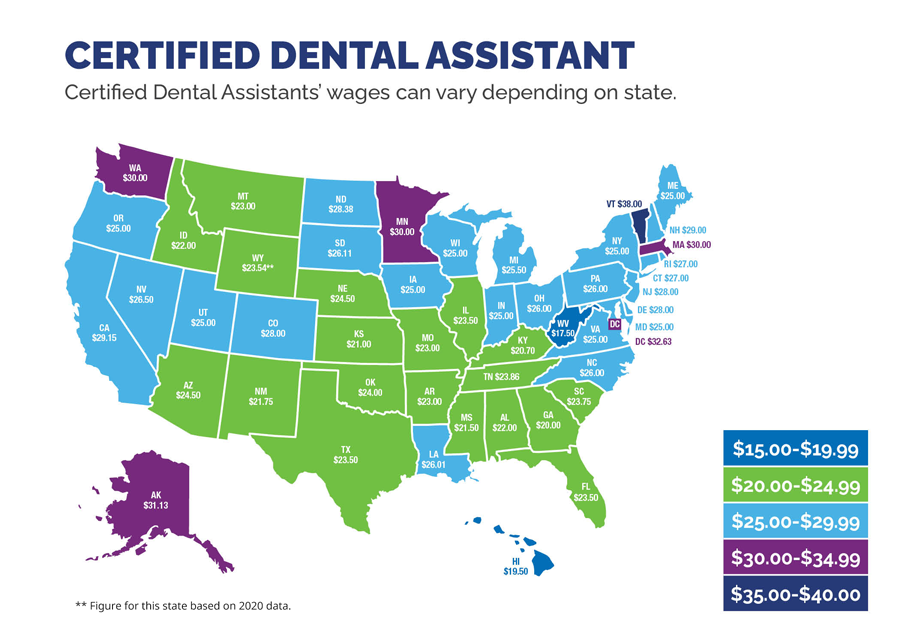How a dental assistant’s practice can affect their pay

Many factors impact how much money you earn as a dental assistant. For example, your level of experience and your credentials (e.g., DANB certification) might play a role in your salary. According to DANB’s 2024 Dental Assistants Salary and Satisfaction Survey, dental assistants who have more experience and are certified tend to earn more. Another significant factor is where you work.
Here are a few ways a dental assistant’s practice can influence their salary.
Setting
Dental assistants can work in several different office settings, including private practices, schools or universities, dental service organizations (DSOs), and community or public clinics (sometimes known as Federally Qualified Health Centers). Across all settings, Certified Dental Assistants (CDAs) earn more than non-certified assistants. The highest wages for CDAs come at DSOs and private practices, with the median pay being $26.91 and $26.50 per hour, respectively. Meanwhile, non-certified assistants earn the most at private practices, making $23.33 per hour.
Specialty
One upside of being a dental assistant is career flexibility, such as the ability to work in different specialties. Although there isn’t a wide discrepancy in hourly wages between specialties, some do tend to pay more. Oral surgery — which requires more advanced training, education, and credentials — is the most lucrative specialty for non-certified assistants at $24.13 per hour and the second-highest for CDAs at $28.25 per hour. For CDAs, the highest-paying specialty is periodontics at $29 per hour. Certificants who are orthodontic ($27.50 per hour) and prosthodontic ($27.00) assistants also earn more than the median pay for all CDAs. Among non-certificants, endodontic ($23.75) and orthodontic ($23.00) assistants earn the next-highest hourly wages.
Read more: Why dental assistants enjoy working in specialties
Geographic location
Where your dental practice is located is one of the most significant factors that can influence salary. CDAs in large urban areas (population over 50,000) earn a median income of $28 per hour. In rural areas (population less than 2,500), however, they make $25.50 per hour. In small urban areas (population between 2,500 and 50,000), CDAs earn $26 per hour. Salary is fairly even between urban and rural areas for non-certified assistants, with those in large urban areas earning slightly more.

Similarly, the state where you work can impact your pay. For CDAs, the median hourly wage per state ranges from $17.50 per hour (West Virginia) to $38 per hour (Vermont). Rounding out the top five are Washington, D.C. ($32.63 per hour), Alaska ($31.13), Massachusetts ($30), Minnesota ($30), and Washington ($30). For non-CDAs, the median pay rate ranges from $17.37 (Alabama) to $30.32 (Minnesota). Other states in the top five are Massachusetts ($28.30 per hour), North Dakota ($27.43), Oregon ($27.42), and New Hampshire ($27.10).

